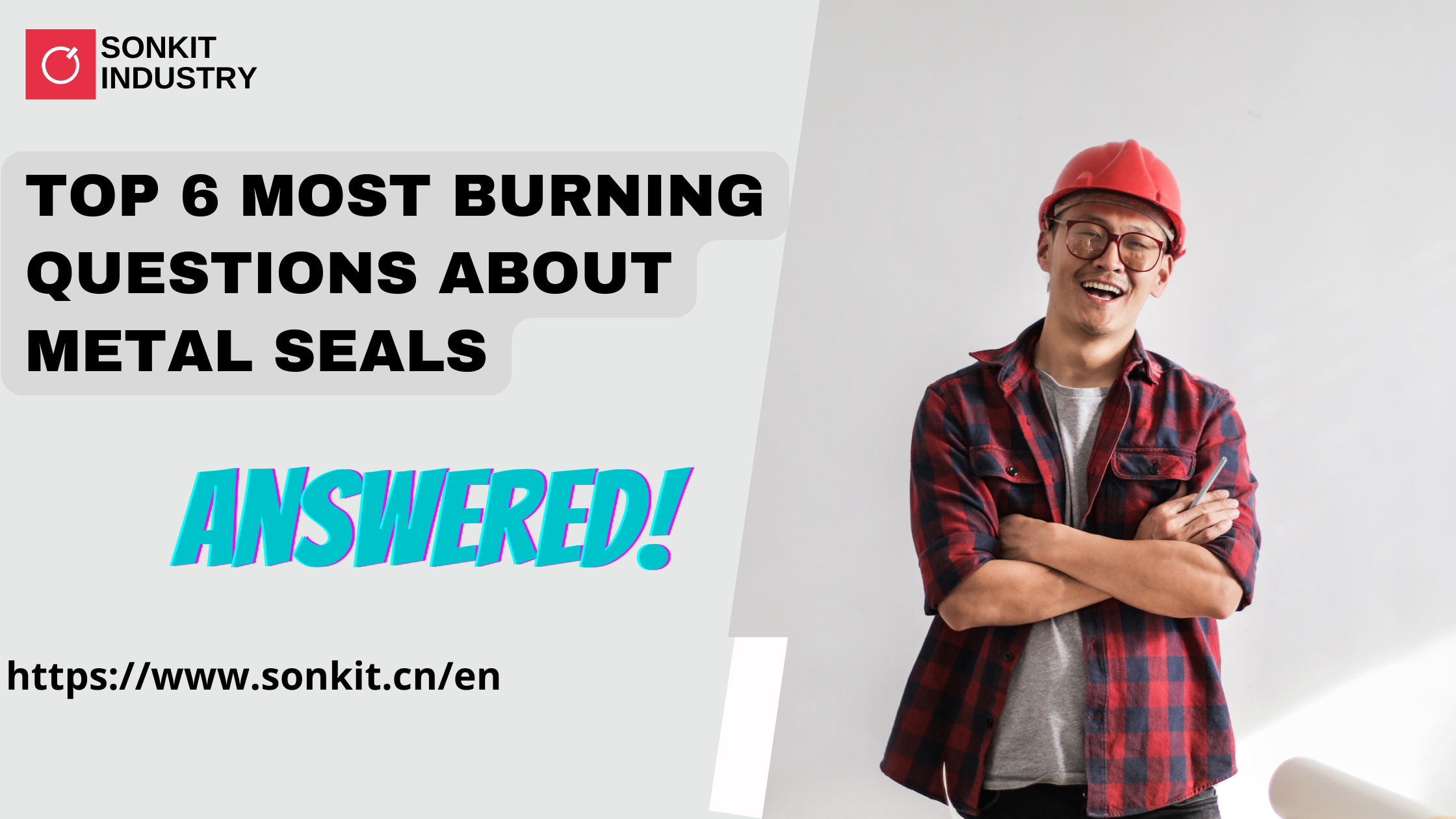As a metal seal manufacturer, we have been asked a lot of questions about metal seals and their applications; some of these questions are so frequently asked that they are considered the Most Burning Questions during metal seal adoption.
In this article, we list the top six questions and answers that we encountered while providing customer support. This article will be very useful if you need to become acquainted with metal ring seals.

1. Which type of metal seal is best for my application?
Until now, there have been so many various kinds of metal seals on the market to match different applications that new users are sometimes perplexed as to how to pick among them, and how to design a metal seal sealing solution becomes vital.
Sonkit provides the most complete set of metal seal solutions including a variety types of metal seals as below:
- Metal O Ring: the most economical choice for high load, high pressure applications, widely used for decades.
- Metal C Ring: one of our most popular designs, it has a low leakage rate and a high spring back.
- Spring Energized Metal C-Ring: An enhanced Metal C Ring, the inner spring can support significant load for rough surfaces and has a lower leakage rate.
- JCE: Jacket C Ring External, with aluminium layer.
- Metal E Ring: Provides the most spring back of any metal seal.
- Metal V Ring: a low-load, versatile seal that is widely used in valve applications.
- COI/COE: Metal Comma Ring (opening adjusted to internal/external pressure).
Before purchasing metal seals, we recommend that you evaluate your working environment by the following questions:
• What is the operating temperature range?
• What is the operating pressure range?
• Is the metal seal going to be subjected to vacuum or corrosive chemicals?
• What are the expected leakage rates?
2. Should I choose plating?
It is determined by the working environment in which the metal seal is used. The three key questions listed below can assist you in narrowing your options:
• What is the temperature of the application?
• What is the medium?
• Does it have to be corrosion-resistant?
By answering the questions, you can select appropriate metal seals from our Metal Seal Design Guide or contact us (johnny@sonkit.cn) for evaluation.
3. What seal materials should be used, and are they dependable?
Metal seals are made of special alloys such as Inconel 718, a high-performance nickel alloy. Depending on the expected working environment of the rings, their outer layers can be plated with silver, tin, or other metals. Plated metal seals can withstand high temperatures and pressures.
4. How many metal seal shapes are there?
Generally, metal seals are currently available in seven different types: Metal O Ring, Metal C Ring, Spring Energized C-Ring, Jacket C Ring External, E Ring, V Ring, and Metal Comma Seal.
Sonkit also provides customized products. Please contact us for additional optional products via email johnny@sonkit.cn or 24hour Technical Support: +86 1391-719-2435. (WhatsApp).
5. Is the spring necessary?
For applications exceeding 35 MPa, Metal C-Rings or vented Metal O-Rings are recommended. Springs are required depending on the required tightness.
6. Are metal seals reusable?
We do not recommend using metal seals more than once for the sake of your property's safety. Metal seals, unlike other elastomeric seals, typically show some degree of plastic deformation ("crush") under high pressures, rendering them unsuitable for reuse.

 Language
Language
 China
China German
German French
French Italian
Italian Spanish
Spanish Turkish
Turkish Arabic
Arabic Dutch
Dutch


 Service
Hotline
Service
Hotline
